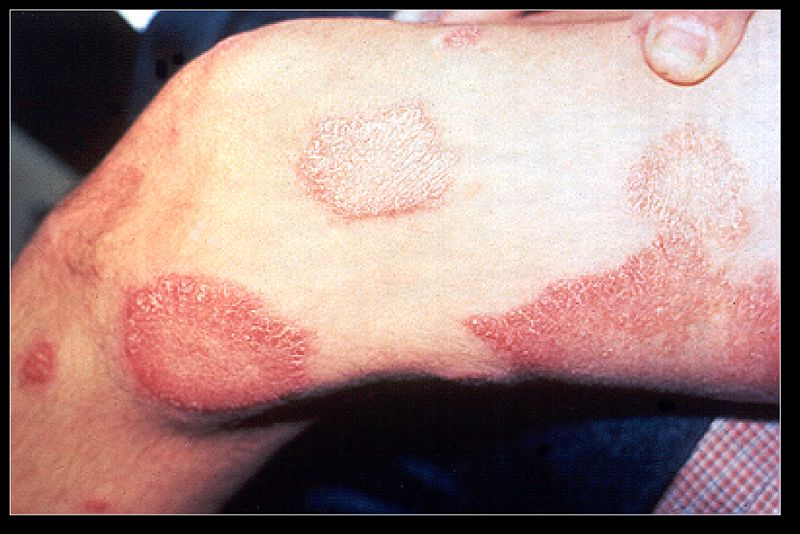
A cold sore is a small lesion like a blister that normally appears around the mouth. It is caused by the herpes simplex virus and the strain that usually causes them around the mouth is herpes simplex type 1 (HSV-1).
The herpes simplex virus is very contagious and can easily be passed from person to person by close direct contact. Once you have been exposed to this virus it remains inactive most of the time.
Certain trigger can activate the virus every so often and cause an outbreak of cold sores. these triggers vary from person to person. Some people have recurring cold sores two to three times year while others will have one cold sore and then have no more. There are some people who may never ret a cold sore at all because the virus does not become active.
SYMPTOMSIn many cases of herpes simplex infections the primary infection does not have any symptoms and you might not know you have contracted the virus unless you get an outbreak of cold sores later on. However, if the primary infection does show symptoms they can be quite severe:
swollen and irritated gums with small painful sores in and around the mouth (herpes simplex gingivostomatitis)sore throat and swollen glandsExcess salivationfeverdehydrationnauseaheadaches
Herpes simplex gingivostomatitis can last between 7-14 days and it can take up to 3 weeks for the sores to heal. Gingivostomatitis does not often occur after the primary infection however. It is more common in young children but it is possible for adults to get it.
If an adult has a primary infection it normally presents itself as pharyngotonsillitis (sore throat, swollen tonsils) or a glandular fever-like illness. as well as a sore throat and possibly swollen glands, you may also have foul-smelling breath and painful sores in and around the mouth. these sores can develop into ulcers with grey or yellow centres.
If you are infected with the herpes simplex virus at an early age, it can be triggered periodically later on in life and cause recurring bouts of cold sores. the symptoms are usually reduced to just the cold sores themselves after the primary infection.
Symptoms of Recurrent InfectionThese infections are usually shorter and less severe than the primary infections. the outbreak of cold sores themselves are usually the only symptom but there may also be swollen glands in some cases.
An outbreak of cold sores normally begins with a tingling, itching or burning sensation around the mouth. Then, most commonly on the outer edges of the lower lip, small fluid-filled sores appear.
You might find that your cold sores appear in the same in the same place every time if you have recurring infections. the cold sores might grow in size and cause you a lot of pain. they may weep and a crust or scab grow over them within 48 hours of the initial tingling sensation.
CAUSESThe herpes simplex virus type 1 (HSV-1) is usually the cause of cold sores. In most cases, the virus is passed on at childhood when you are kissed by someone with a cold sore, such as a family member. the virus goes through the skin before it travels up your nerves. Here it lies dormant (inactive) before being triggered at a later date.
There are several factors which are believed to trigger outbreaks of cold sores and these can be different for each person. these include:
emotional upset or psychological stressfatigue and tirednessan injury to infected areastrong sunlightmenstruation
TREATMENTAntiviral TreatmentAntiviral cold sore creams can help to speed up the healing time of a recurrent infection, if used correctly. these creams usually contain medication known as aciclovir or penciclovir.
These creams can be bought over-the counter from pharmacies with no need for a prescription. It is important that they are applied as soon as the first signs of a cold sore appear, for them to be effective. this is when the herpes simplex virus is spreading and replicating itself. It is unlikely that using an antiviral cream after this period will have any effect on the cold sore. also, these creams only help to heal a current outbreak of cold sores. they can not cure the virus which causes them or prevent future outbreaks
You should apply the cream up to five times a day for 4-5 days.If you have cold sores which are especially severe or if you have a damaged immune system, you might be at risk of further complications, such as encephalitis (swelling of the brain) or the infection might spread to other parts of your body. you should see your GP if this is the case and he may prescribe you antiviral tablets and refer you to get specialist treatment. what treatment you receive will depend upon how severe your cold sores are or the particular complication causing you problems. For example, if you have herpetic keratoconjunctivitis, which is an infection that affects the eye, you may need to see a ophthalmologist (specialist eye doctor).